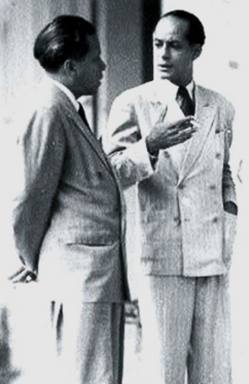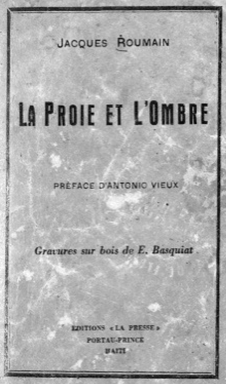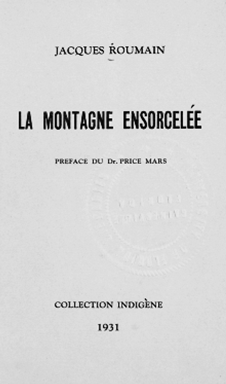 "Jacques Roumain and the Communist Movement" by Léon-François Hoffmann, Ph.D.
"Jacques Roumain and the Communist Movement" by Léon-François Hoffmann, Ph.D.
Hoffmann is Professor Emeritus of French and Italian at Princeton University. He has written numerous books, such as Le roman haïtien: idéologie et structure (1982), and edited Oeuvres complètes de Jacques Roumain (2003).
Like a great number of pre-World War II intellectuals, young Jacques Roumain, one of the leaders of the resistance against the American occupation and a bitter critic of its Haitian upper-class collaborators, was inspired by Marxism and Leninism.
In 1934 he founded the Haitian Communist Party and signed its manifesto, an 18-page pamphlet entitled Analyse schématique: 32-34, probably composed in collaboration with his friends étienne Chevalier and Christian Beaulieu. He was immediately jailed as a subversive. Two years later president Sténio Vincent ordered the Party dissolved and Roumain sent into exile.
While in Belgium, France and later in the United States and Cuba exile, Roumain was in touch with leftist organizations and contributed to communist publications. Throughout his short life, he toed the political line set by Stalin: he approved of the murder of Trotsky, defended the Russo-German pact of 1939 and did not criticize the Nazis until they invaded the Soviet Union.
In correspondence with his wife he constantly attacked the Western democracies, whose war effort he never even mentioned, while celebrating the Soviet victories on the Eastern front. Towards the end of his life, he became close to German Communist exiles in Mexico, and among the last persons he visited before his death was his old friend and fellow Communist the Cuban poet Nicolás Guillén.


